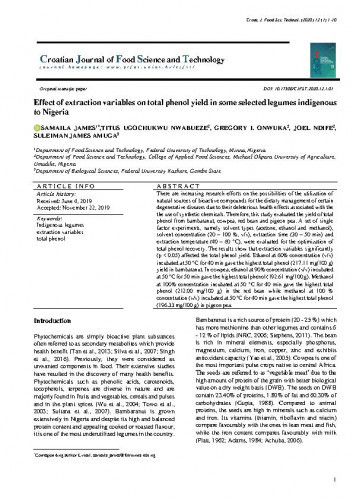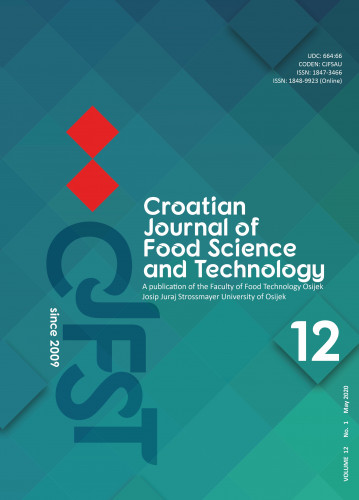There are increasing research efforts on the possibilities of the utilization of natural sources of bioactive compounds for the dietary management of certain degenerative diseases due to their deleterious health effects associated with the the use of synthetic chemicals. Therefore, this study evaluated the yield of total phenol from bambaranut, cowpea, red bean and pigeon pea. A set of single factor experiments, namely solvent types (acetone, ethanol and methanol), solvent concentration (20 – 100 %, v/v), extraction time (30 – 50 min) and extraction temperature (40 – 60 °C), were evaluated for the optimization of total phenol recovery. The results show that extraction variables significantly (p <0.05) affected the total phenol yield. Ethanol at 60% concentration (v/v) incubated at 50 °C for 40 min gave the highest total phenol (217.11 mg/100 g) yield in bambaranut. In cowpea, ethanol at 90% concentration (v/v) incubated at 50 °C for 50 min gave the highest total phenol (192.61 mg/100 g). Methanol at 100% concentration incubated at 50 °C for 40 min gave the highest total phenol (212.00 mg/100 g) in the red bean while methanol at 100 % concentration (v/v) incubated at 50 °C for 40 min gave the highest total phenol (196.33 mg/100 g) in pigeon pea.
Sažetak

 Croatian journal of food science and technology : a publication of the Faculty of Food Technology Osijek : 12,1(2020) / editor-in-chief Jurislav Babić.
Croatian journal of food science and technology : a publication of the Faculty of Food Technology Osijek : 12,1(2020) / editor-in-chief Jurislav Babić.